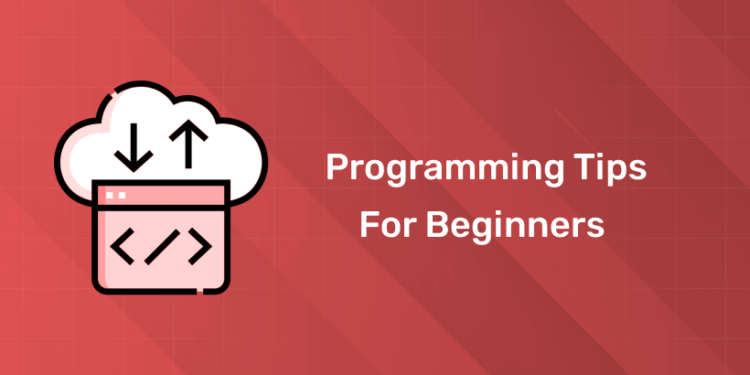Table of Contents
If you’re new to programming, starting out can be an intimidating process. The language syntax, the number of frameworks and libraries, the fact that you don’t know anyone else who does what you do (so there are no mentors or colleagues to guide you along)—it can feel like there’s a lot to learn and no clear way to do it. But if you want to make progress on your first project, having some handy tips up your sleeve can help. Here are our top 10 programming tips for beginners. Happy coding!
Programming Tips For Beginners 2024
Here are some of the programming tips for beginners
1)Read Code
When you are reading code (aka reverse engineering), you have to be extremely careful. You cannot make changes to another developer’s code—that is theft, and it will get you kicked out of school and banned from certain developer communities. However, there are times when reading someone else’s code can help you figure things out or give a new perspective on how something works. When that happens, take notes! If your professor wants a reference page as part of your assignment, include an annotated list of ways you learned what was happening in that code.
2) Learn From Mistakes
As a beginner, it’s easy to get excited about programming and begin making grand plans. However, it’s important to take baby steps and actually finish simple projects first. By working through small programs and failing a few times, you’ll learn how to correct mistakes when they occur (and when they will occur). As an expert programmer, it’s easy to ignore errors; for beginners, however, every mistake is an opportunity to learn something new!
3) Get The Right Mindset
Have you ever noticed how certain people seem to be natural at everything they do? It’s because they have a mindset that makes them successful. But you don’t need to be a natural talent in order to succeed; success is mostly about persistence, passion, and hard work. And that’s good news because we can all work on developing these traits and reaching our goals! Set Realistic Goals: The first step toward achieving any goal is setting one that is actually attainable. Don’t set yourself up for failure by making unrealistic goals like I want to start my own business by January 1st when you haven’t even thought about what kind of business you might want or how you would go about creating it.
4) Practice, Practice, Practice
If you want to get better at programming, you should be writing code—lots of it. The most valuable feedback for beginners will come from running code and finding out what works and what doesn’t. It’s easy to think up all sorts of neat ideas in your head, but only by writing them down can you discover whether they work or not. If you get stuck at some point along the way, asking for help is key; there are tons of great programmers out there willing to help with issues as they arise. It might take some time before they find something that fixes your issue—or it might just be a matter of having written your code improperly—but asking will almost always lead to some kind of progress towards a solution. Learn how to google!
5) Get Rid Of Academic Baggage
Getting into a good, technical college is just half of your battle. The other half is getting into a coding boot camp that will teach you all about Ruby on Rails and related languages. Make sure to check out our guide to choosing a coding Bootcamp before you start applying! Just getting started? Check out our list of free programming courses. If you’re still working on your degree, be sure to check out our guide on how to excel in a computer science school. Be mindful of academic baggage – educational roadblocks that are easy to run into if you’re not familiar with how computers work. In particular, watch out for: Assembly language: Assembly is one step above machine code (the level at which programs can directly control hardware). It’s only used by very low-level programmers or people who want ultimate performance from their code. Unless you plan to do low-level programming or work on an operating system kernel, it’s unlikely that assembly will help you. We don’t cover it here but see Introduction to x86 Assembly Language Programming by Peter J. Ashenden instead as a reference (note: I haven’t read it myself). Compilers/interpreters: These allow programmers to write code once and then run it many times without having to recompile it every time they want to use it.
6) Find Solutions To Your Problems
Find someone that can provide you with a logical solution to your problem. A good developer will provide an extensive and logical explanation of your situation, and then offer a way to resolve it. This is also a good time to see if you can develop some sort of rapport with them. Do they seem open to conversation? Or do they just want to get off of their shift and back home? If you feel comfortable asking questions, go for it! But don’t be that jerk that interrupts every minute they’re trying to work on their own project; even if it is not going according to plan, as we all know, an interruption takes twice as long as doing something yourself.
7) Use a Bug Tracker
You may have heard of bug trackers before, but if you’re a beginner they can be pretty daunting. That’s okay because you don’t need to use a full-featured tracker right away. Instead, pick up an issue tracking app like MantisBT or Jira and get started with one or two features that are important to your team. If you want more control, check out Bugzilla for free. Even though it’s not as user-friendly as other apps, it’s a powerful tool that will help you learn how to manage bugs effectively. Once you feel comfortable with a basic bug tracker, move on to something more advanced. Your project management skills will improve every time you make a change!
8) Do A Lot of Research
You don’t need to become an expert in your field immediately. The worst thing you can do is attempt to learn as much as possible about a topic too quickly because that will overwhelm you and leave you feeling discouraged. Take your time, do some research, and learn about a particular topic for a few days or weeks before trying to apply it. This way, when you try out something new in your code, it’s easier to understand what’s going on. It also makes debugging issues easier. If you’re having trouble with a piece of code, take a step back and figure out where things went wrong. It may be obvious once you look at it again after taking some time away from it. If not, ask someone who knows more than you (like a mentor) for help troubleshooting your issue.
9) Know When To Ask For Help
As you start getting deeper into coding, you’ll probably hit some points where you feel like a complete novice. If that happens—and it’s a good bet that it will—remember: as long as you don’t outright give up on your goal, most of us were beginners at one point too. So don’t be ashamed to ask for help—there are tons of resources out there to help get you back on track! Here are a few places to start Railsbridge is an international non-profit organization dedicated to providing free programming workshops and job placement assistance to people from underrepresented groups in tech. RailsBridge has chapters all over North America and also hosts workshops online via Google Hangouts. Find more information about local workshops here. Don’t forget, if you want something done right, do it yourself.
10) Write Tests
Testing your program is as important as writing it. You need to make sure that everything works as you intend it to, and tests are a way of making sure of that. Don’t skip testing because you think it’s not important—it is, even if only for your own peace of mind. Just write those unit tests! (And remember: a programmer who doesn’t write tests will eventually be given a test he or she cannot pass.) If you are interested to learn new coding skills, the Entri App will help you to acquire them very easily.












